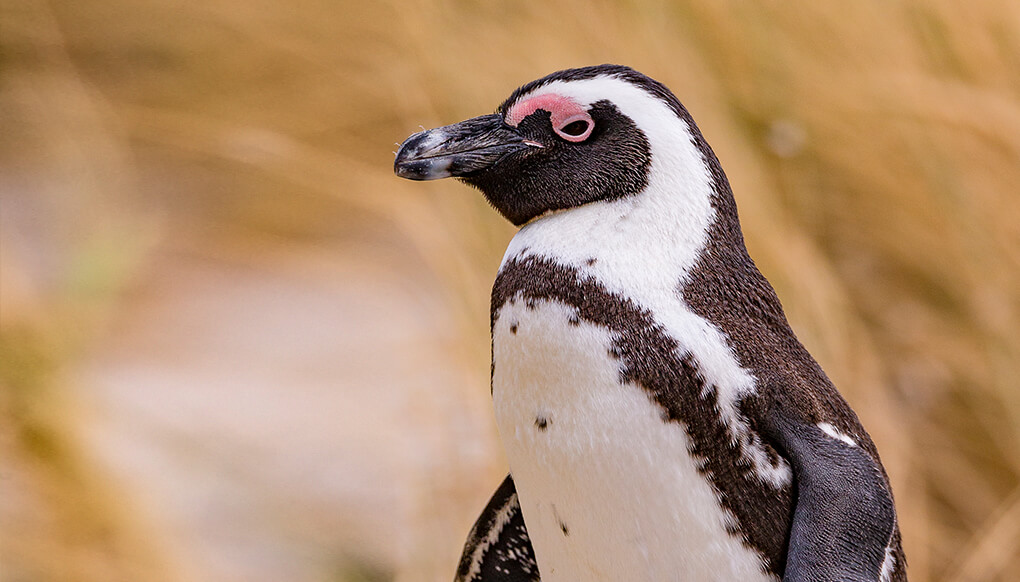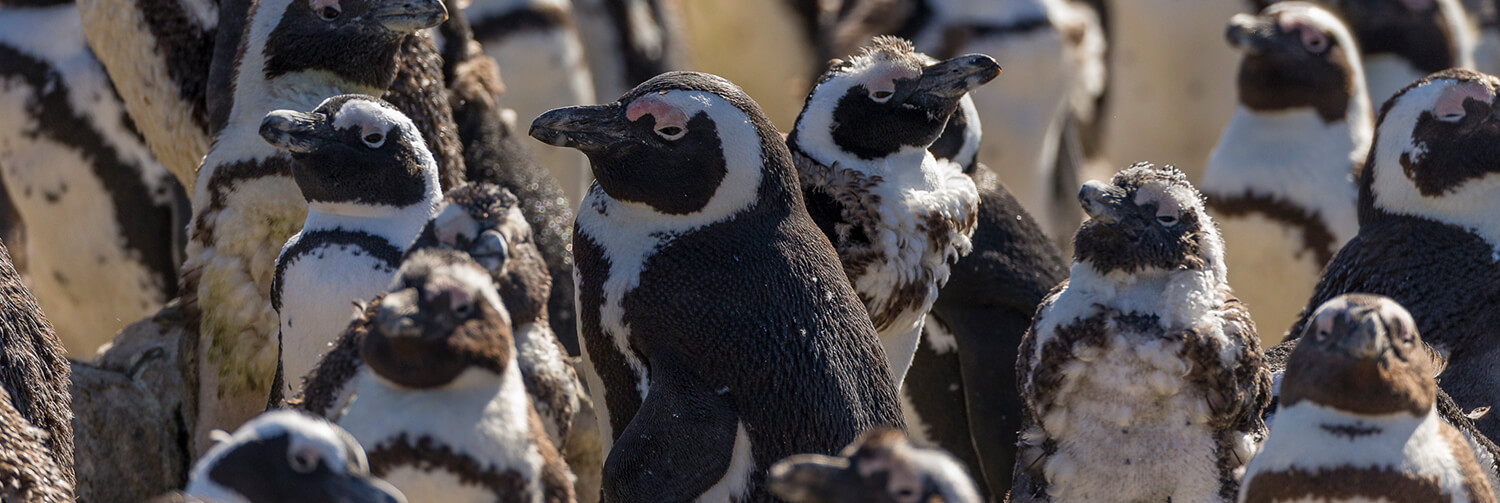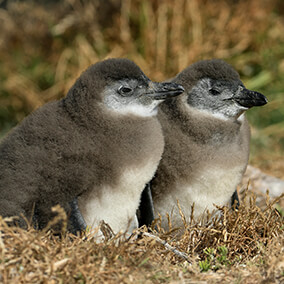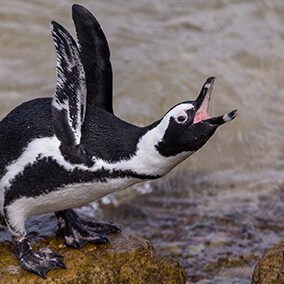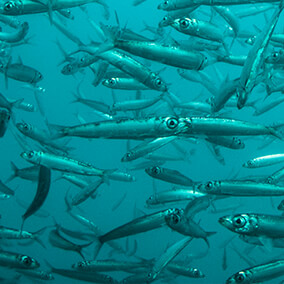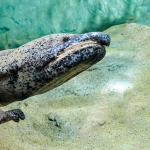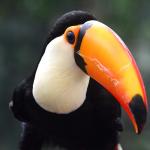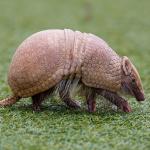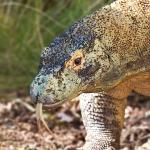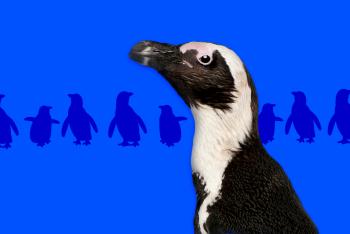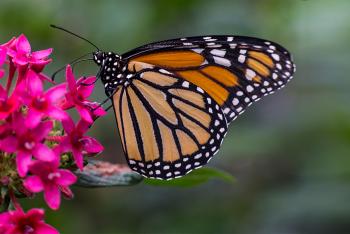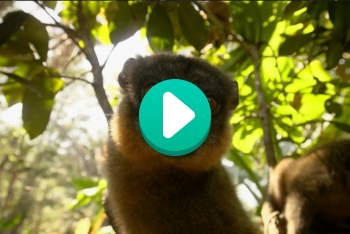
Birds
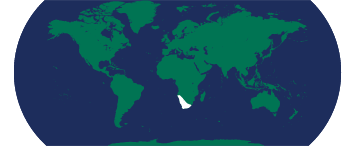

Endangered
facts

African penguins eat small fish like anchovies and sardines as well as squid and shellfish.

African penguins make their homes on rocky coastlines.
description
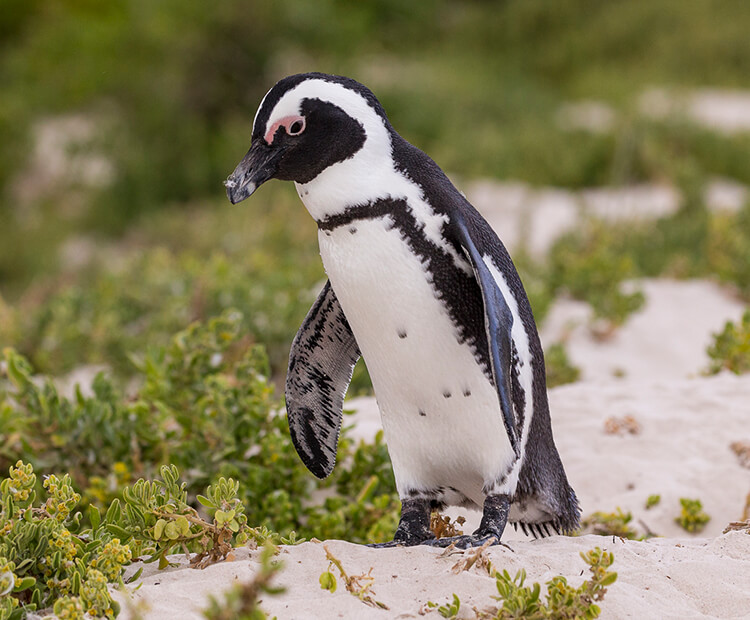
They like it warm
Not all penguins live where it’s cold—African penguins live at the southern tip of Africa. Like other penguins, African penguins spend most of the day feeding in the ocean, and that helps keep them cool. Their land habitat can get quite warm, but bare skin on their legs and around their eyes helps them stay cool. They also stay in the shade when they can.
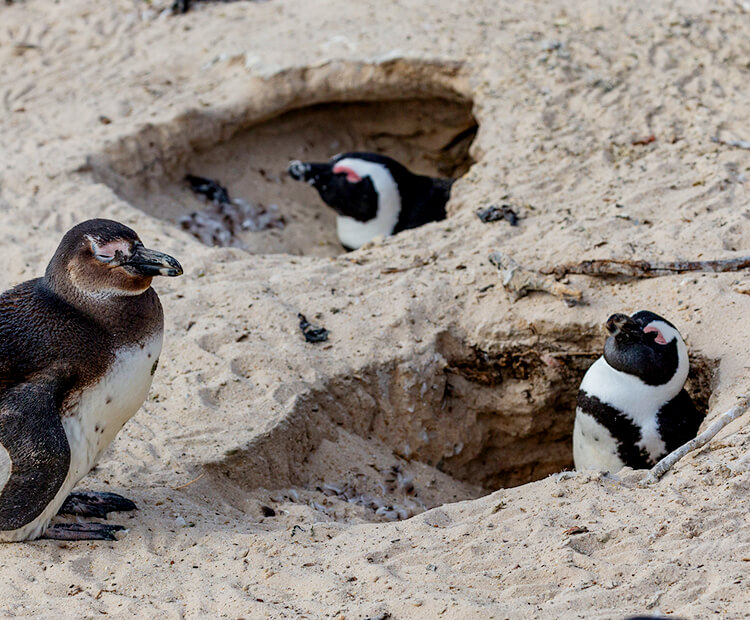
Dig that burrow
Most other penguins lay their eggs out in the open, but African penguins have a different approach. They dig burrows to lay their eggs so they are protected from the sun’s heat. The young chicks stay in the burrows for about 3 weeks. After that, they go out to explore but return to the burrow to stay cool and avoid predators. On land, leopards, mongooses, and domestic dogs and cats hunt penguins. In the water, penguins must avoid sharks, fur seals, and orcas.
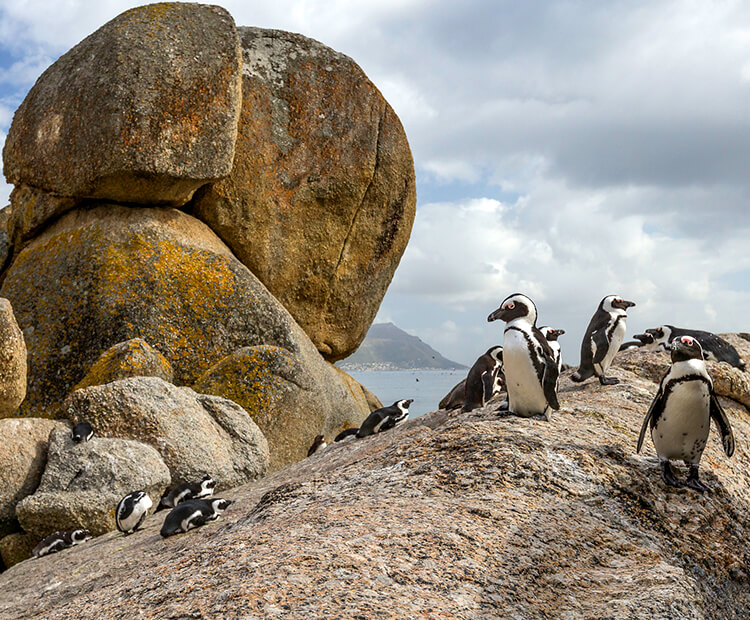
Rare birds
The African penguin is an endangered species—there are only about 52,000 birds left in the wild. What’s threatening them? style One problem is that humans gather penguin droppings, called guano, for fertilizer. But to gather large amounts, heavy equipment is brought in that destroys the penguins’ nesting sites. Other threats include humans collecting penguin eggs for sale, competition with humans for fish, and oil spills.

